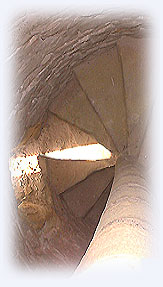









 |
The Impact of Violence on Learning
Acting out
There are many different ways to draw attention to the fact that something is wrong when we are unable to tell others, or when nobody believes us or takes action. Most of these ways of behaving, such as being the class clown or bully, hurting ourselves, or addictions, affect our learning. If we have been violently controlled, control may be complicated: we may have to be in control, want to avoid control, use drugs or alcohol to let go of control, feel totally helpless, or get angry when others control us in any way. In school there are many rules to control what, when and how we do things. This may be hard to bear. We may get into trouble and get sent out of the class, we may hurt ourselves and miss class, we may be numbed by drugs or alcohol, or may simply feel too bad about ourselves to concentrate and learn. Acting out in school may lead to labels like “conduct disorder,” “oppositional defiant disorder,” or “behaviour problem.” Such labels may lead to medication, which can itself affect learning.
 Pictures Pictures

Acting out includes bullying, trying to disappear from view, using humour to deflect, using alcohol or drugs, skipping school, hurting oneself in many different ways, being angry and explosive, and over-eating and many more ways of showing something is not OK.
- - - - - - - - - - - - -
In the comic strip, Just a Story, Wendy doesn’t have any friends her age and feels overwhelmed by her busy school. Her little brother is more social but he’s quick to lose his temper and get into fights. Something is clearly bothering them both. Find out how they’re open to getting help and breaking down the stigma of mental health. ( - 3.25MB) - 3.25MB)
- - - - - - - - - - - - -
Photos by Leave Out Violence Youth.
top of page
 Quotes Quotes
Students Reflect on Expressions of Distress and Resistance ( - 24k) - 24k)
Women involved in a research study wrote about many different actions they took to express or “act out” what was going on for them when they were at school. Often this acting out got them into trouble.
top of page
|




